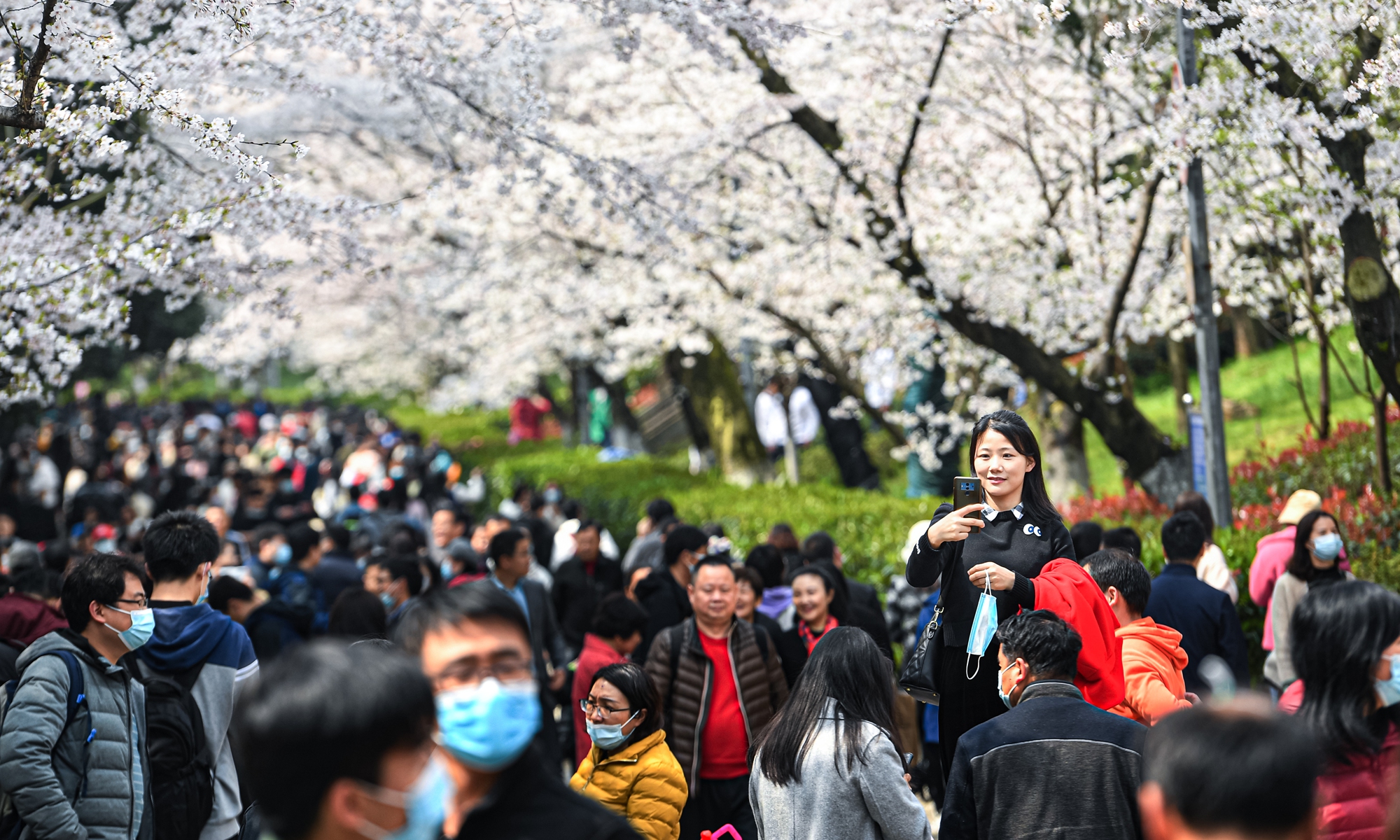One year ago, Wuhan, the Central China city that was hardest hit by the novel coronavirus, ended a 76-day lockdown. The metropolis of 11 million people slowly but steadily restarted on April 8, 2020. During the past year, Wuhan people witnessed a gradual return to normal life with traffic jams, crowded streets and a rapid economic recovery. And it also saw more tourists from other parts of China and more job opportunities for locals and outsiders. The scars of the epidemic are fading in Wuhan, but the stigmatization of the city by the West lingers. What does Wuhan look like now? What are the feelings and regrets of the people of Wuhan? Global Times reporters Zhang Hui and Xu Keyue explored and experienced the city.
Standing on the pedestrian overpass near Tongji Hospital on Tuesday morning watching the crowds, listening to people talk, hearing the sound of car horns in the rush hour, smelling the aroma of baked sweet potatoes from street vendors, one can easily portrait a normal business day in April in Wuhan, capital of Central China's Hubei Province.
But if one looks down at the words printed every other meter on the glass railings on either side of the overpass, such as "Tianjin medical team, 1,307 people in total, aided Wuhan," and "Jilin Province medical team, 1,209 people in total, aided Wuhan," one knows that behind those seemingly cold, few words are numerous hot beating hearts from tens of thousands of medics nationwide who came to aid the city hit hardest by coronavirus in 2020, and one knows this is not just a normal business day in Wuhan; this is what Wuhan and all the Chinese people have been fighting for during the past year.
One year after the city's 76-day lockdown was lifted on April 8, 2020, the normal bustling Wuhan has come back.
Chinese people often say children are the future of the country. For Feng Ling, obstetrics department director at Tongji Hospital, each newborn she delivered during the epidemic represented profound significance for her team and for Wuhan.
"Each time, when we safely delivered a baby during that time, we saw hope, we saw the future of Wuhan. We were extremely happy," Feng told the Global Times on Wednesday.
One year later, these "little hopes" grew stronger, bigger, just like Wuhan city and its people.
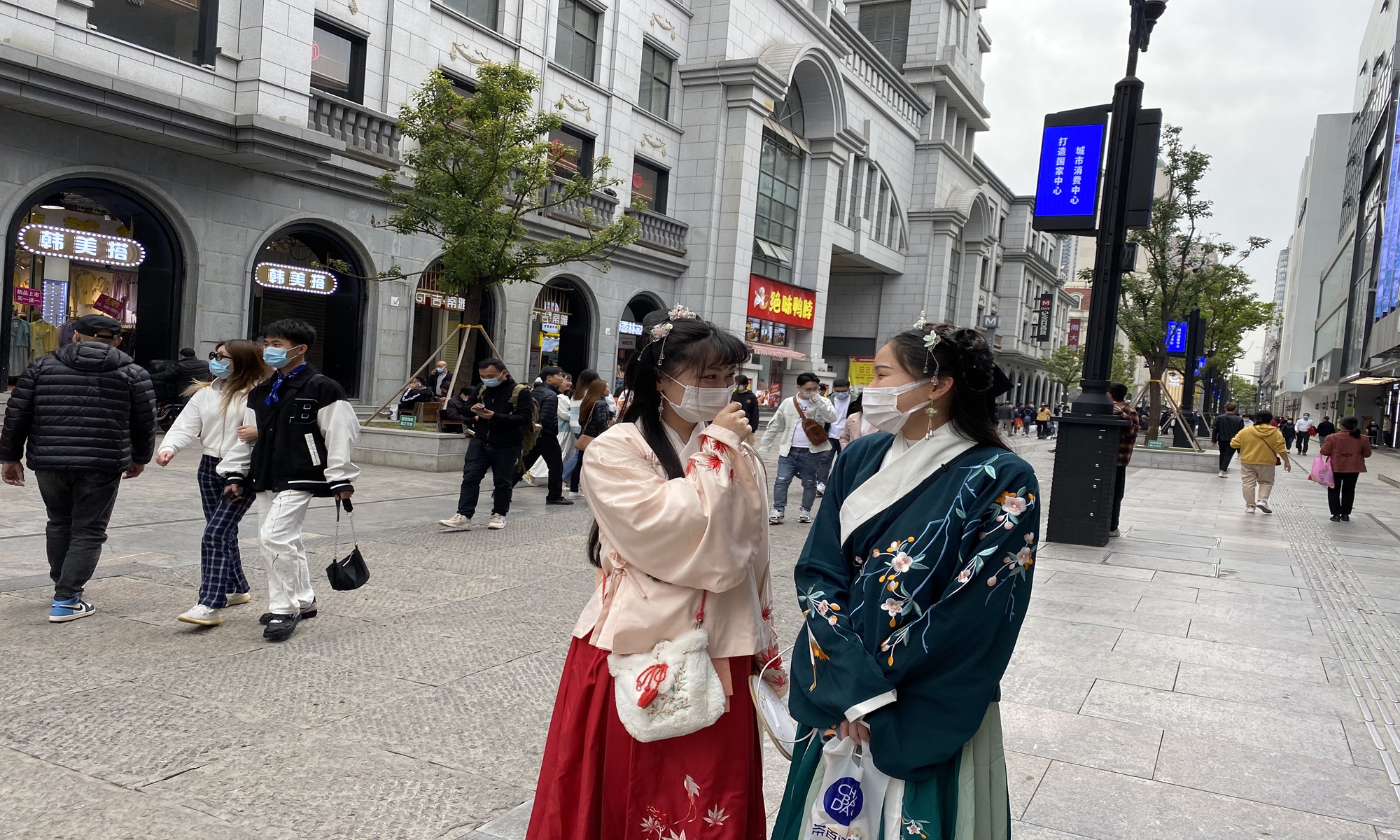
Shiliu was one of these little "hopes." Feng, who delivered Shiliu, said the hospital just organized a birthday party for Shiliu in February.
Shiliu's parents explained that the boy was named after the fruit pomegranate, which represents that Chinese are like pomegranate seeds that stick together, united in battling the COVID-19.
"Shiliu's birthday party, held when Wuhan was finally stablized and when the whole country gained victory in battling COVID-19, is of special significance," Feng said.
Shiliu gained nationwide fame days after he was born in February 2020. He was separated from his parents at birth as his parents were both diagnosed with COVID-19. After a camera was installed near his bedside in the hospital, he gained millions of "cloud parents" as a large number of Chinese netizens kept an eye on him and sent good wishes to him.
At midnight on Monday, there were no long lines of vehicles waiting to pass through the Wuhan West toll station as what happened on midnight April 7, 2020 when thousands of drivers were waiting to leave Wuhan after the city lifted outbound travel restrictions.
Since last summer, drivers passing through the station did not need to show their health code, which saved time.
Li Sheng, an employee of the toll station, told the Global Times on Wednesday that around 20,000 vehicles have passed through the station every day recently, and the number was equal to the one before the epidemic.
"The city was still deserted and quiet when the lockdown was just lifted, and gradually I saw more vehicles, mostly carrying people to work, and returning to Wuhan," He said.
The past Qingming Festival has seen the number of vehicles passing through the station reaching nearly 30,000 each day, Li said.
The toll station was included in the list of busy toll stations in Wuhan by the local traffic management department during the festival.
One year after the lockdown was lifted, Wuhan people said it's not just the city which has gotten safer; Wuhan people have turned more united, more eager to help others, and have showed more smiles and more respects to medical workers.
They also have paid more attention to health and family, more frequently showed up at gyms, and spent more time with their families on holidays.
"Many tourists from other provinces and cities asked about what happened in the epidemic, and I would always tell them Wuhan is the safest city now in the world," a snack stall owner surnamed Zhou said, noting that Wuhan people had taken multiple nucleic acid tests, and all the store owners have been vaccinated.
"Speaking of the COVID-19 vaccine, I was very proud that Wuhan is also a vaccine manufacturing base. Wuhan-produced vaccines are sending hope to all Chinese people and even people in other countries and regions," he said.
The inactivated COVID-19 vaccine produced by Sinopharm's Wuhan institute was granted conditional market approval in February, and the annual production capacity of the vaccine reaches 100 million doses.
The Global Times learned from the institute on Wednesday that it is expanding its annual production capacity with the first-phase construction of an expansion project located in Jinggang industrial park expected to be finished by May.
After the project is completed, the annual production capacity of Wuhan-produced COVID-19 vaccine is expected to increase to 1 billion doses.
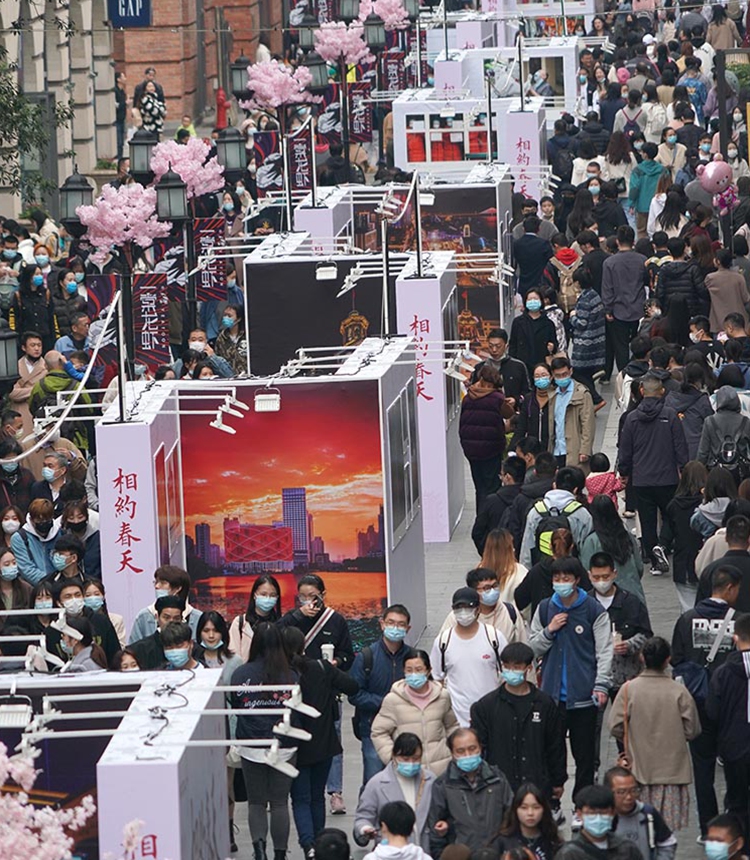
One year after the lockdown was lifted, Wuhan's economy is on the fast track of recovery with crowds lining up at food streets, more tourists coming from other provinces and cities, and the number of jobs greatly surging.
Asking Wuhan people which sector in the city has witnessed the most changes one year after the lockdown was lifted on April 8, 2020, many pointed to snack stalls.
A seafood restaurant owner surnamed Zhou whose restaurant was under renovation in Jiqing Street, a popular nighttime food street with snack bars, night clubs and barbecue restaurants, told the Global Times on Wednesday that his business now is even better than in the days before the epidemic, so much so that he bought a neighboring store to expand his business.
"In the past three-day Qingming Festival, some restaurants in the street had to close early as all the food was sold out before their usual closing time," Zhou said. "A sharp contrast from last April, when I had no customers for days, literally not a single customer visited my seafood restaurant."
For some snack stall owners, too many customers also brought them "sweet trouble."
Wang Kai, manager of the Sijimei Tangbao in Jiqing Street, told the Global Times that he has trouble hiring more people as his store has seen crowds lining up from morning until night during the Qingming Festival holidays.
"As long as it doesn't rain, the upcoming May Day holidays, the first golden holidays this year, will definitely witness more customers," Wang said.
As the first festive season after the Spring Festival, during which time people were advised not to travel, the Qingming Festival, which ended on Monday, witnessed a travel blowout in Wuhan as well as in Hubei Province, whose capital city is Wuhan.
According to the Hubei provincial department of culture and tourism, Hubei received 11.7 million tourists during the three-day Qingming Festival holidays, which was about 60 percent of the total during the 2019 Qingming Festival. Several Chinese online travel platforms showed Wuhan was a top-10 tourist destination.
"Last Qingming Festival, I drove the taxi to send families who lost their loved ones to cemeteries or to pick up their ashes, but this Qingming Festival, I picked up tourists from across China to enjoy the thriving city," Ye Yajun, a taxi driver, told the Global Times on Wednesday.
The striking contrast between last and this year's Qingming Festival shows our government has made a huge contribution and worked hard in recovering the city, which we are sincerely grateful for and proud of, Ye said.
He volunteered to ship necessities for locals under home quarantine and shuttle senior patients from residential community in Jianghan district to buy their medicine since January 26, 2020, the second day of the Spring Festival when the lockdown was put into place.
"In recent months, it has been very easy for me to earn 500 or 600 yuan every day but it was very hard to make 300 or 400 yuan in the days when the city just lifted its lockdown," Ye said, noting that his income every month recently has basically returned to the level before the epidemic.
Spring is also an employment season, when several universities in Wuhan invite companies for career talks. And this year, more in-person career talks were organized. Wuhan University has organized around 50 such career talks in one week, and a securities company's career talk on Tuesday night attracted around 100 students.
An employee of China International Trust and Investment Corporation surnamed Liu told the Global Times on Tuesday that after several rounds of nucleic acid testings and as the vaccination drive is under way in the city, Wuhan has become one of the safest cities in the country, and about 300 students handed in their resumes to Liu.
Liu said that in the first half of 2020, the company's Wuhan branch had no interns recruited locally. The number of interns from Wuhan began to return at the end of 2020.
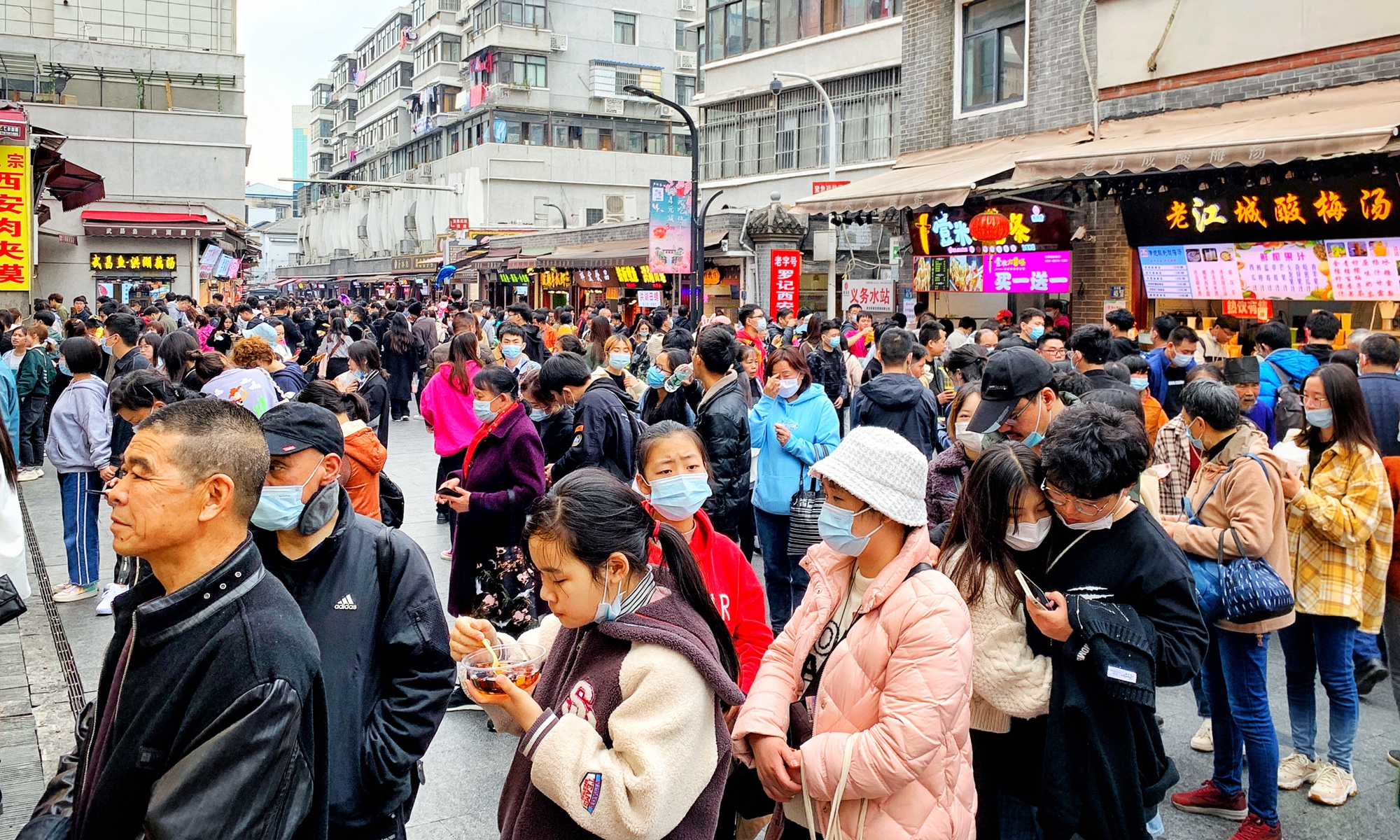
Wuhan has returned to the same hustling and bustling metropolis it was pre-pandemic one year after the lockdown was lifted. However, this return is tinged with caution and regret as COVID-19 is still plaguing the rest of the world while the stigmatization of Wuhan by some Western politicians is strongly refuted by local people.
Local residents were still wearing masks, and disinfection, temperature checks and health code scans are necessary for public venues, and some nightclubs are still closed or limit the number of visitors. A local taxi driver surnamed Peng said he hopes residents, even strangers in the city, could shake hands, he himself could smile to his customers without masks covering his and their faces and people could talk without the need to keep social distancing.
Aside from regrets over the epidemic, Wuhan residents were strongly furious and they refuted the West's smears and politicization to pin the coronavirus blame on Wuhan.
Huang Haixia, who has lived in Jiqing Street for years, told the Global Times on Wednesday it seems that the West led by the US is deliberately throwing mud at Wuhan to conceal their own misdeeds.
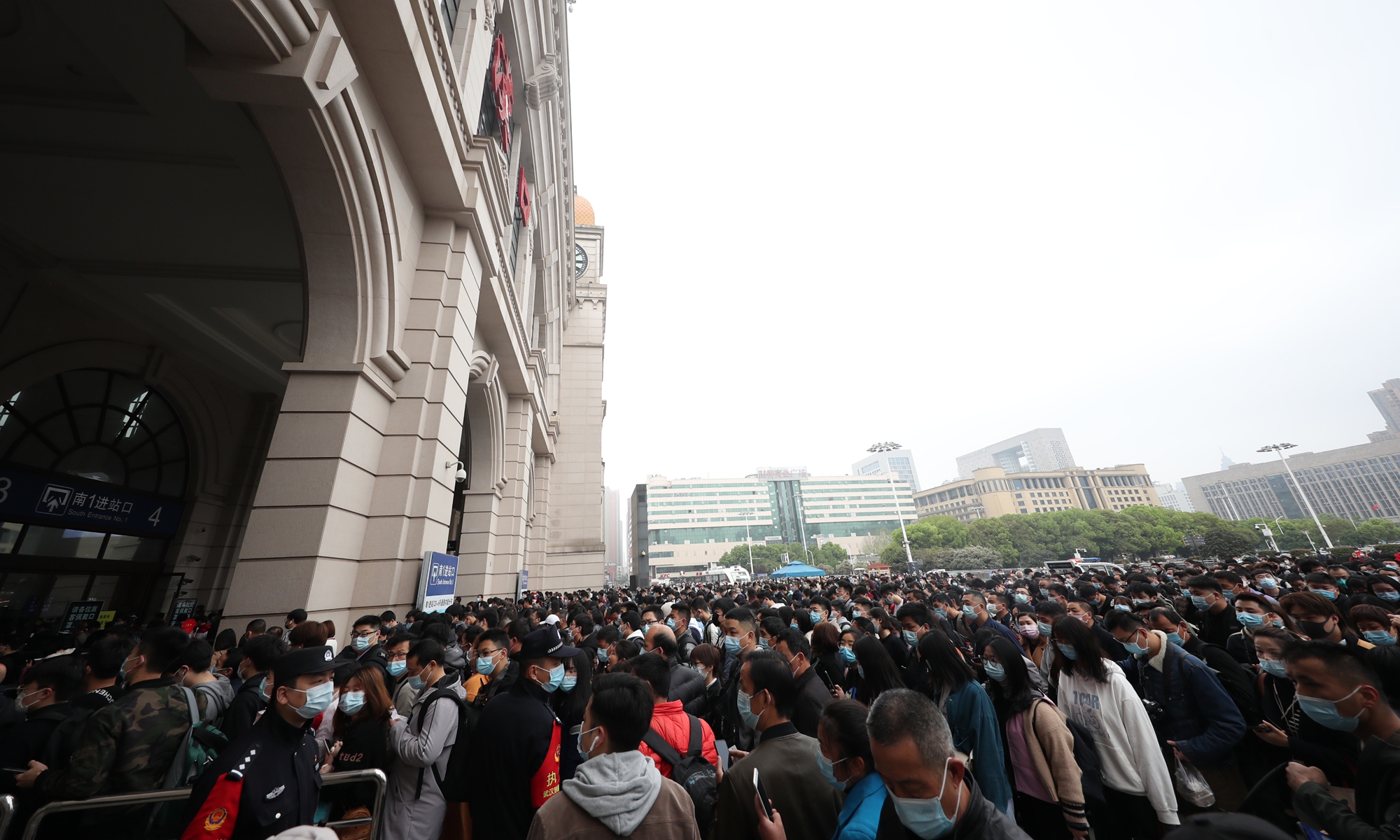
"Why does the US keep claiming Wuhan is the origin of the coronavirus, but when we questioned its athletes during the Wuhan Military World Games in October 2019, the US dared not to show any test results or health proof?" Huang said, noting that she believed the US must be hiding something, and that World Health Organization experts should go to the US for coronavirus origin research.
After a joint WHO-China report on tracing the origins of the coronavirus was released at the end of March, Chinese scientists from the WHO-China virus tracing team suggested that it is time for scientists to dig somewhere else and test more hypotheses to solve the mystery.
"Wuhan is the victim, just like New York City, Melbourne and Tokyo are victims. None of us is a beneficiary of this outbreak," said Zhou Ning, a cardiologist from the Tongji Hospital in Wuhan and a frontline doctor.
Stigmatizing a city for political interest without any evidence is really depraved from the perspective of human conscience, Zhou said.
As the proverb goes, "the wind would break the tallest tree," the slander from the West against Wuhan or even China reflects that China did very well in the anti-epidemic battle as "outstanding people are liable to be attacked by jealousy."
Exploring the virus origins is a very hard and complex scientific issue and it is difficult to find the origins in months, Zhou said.
